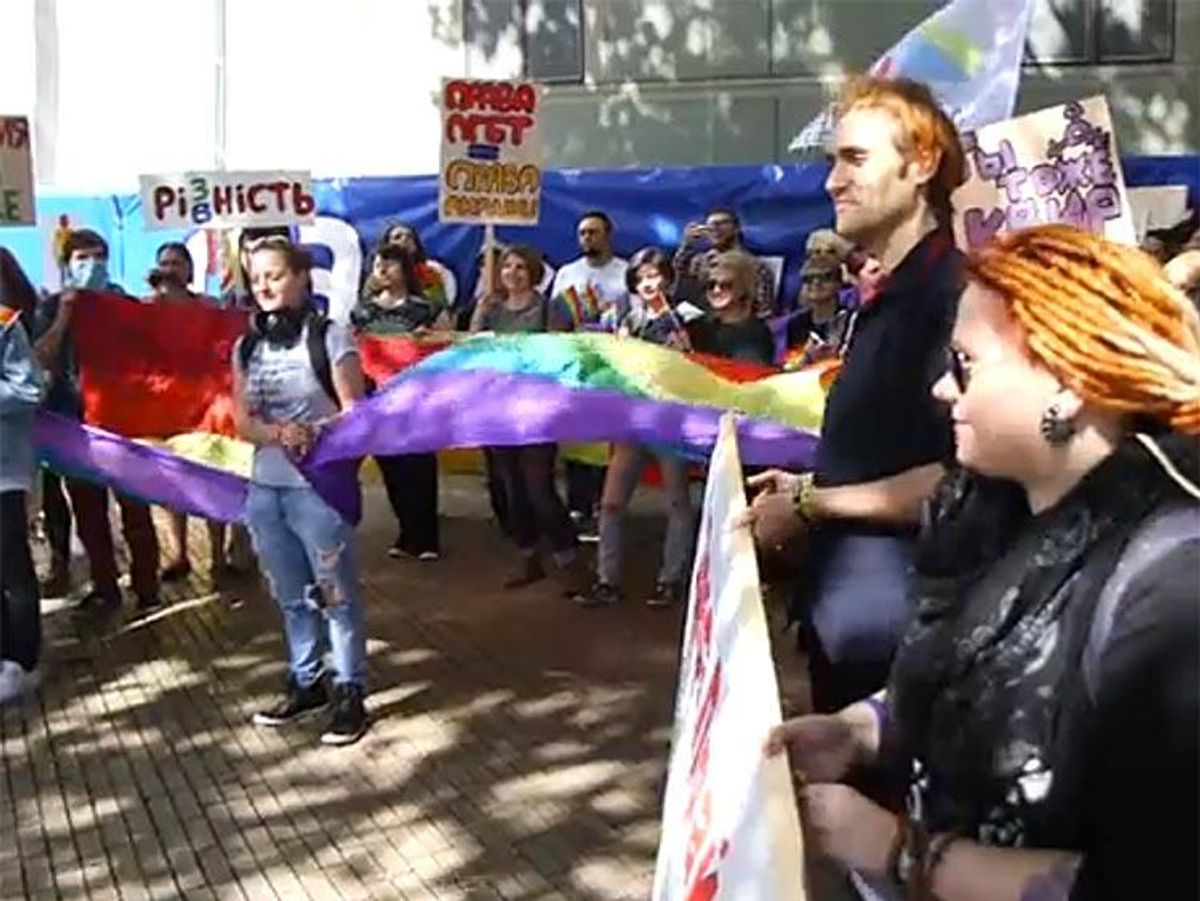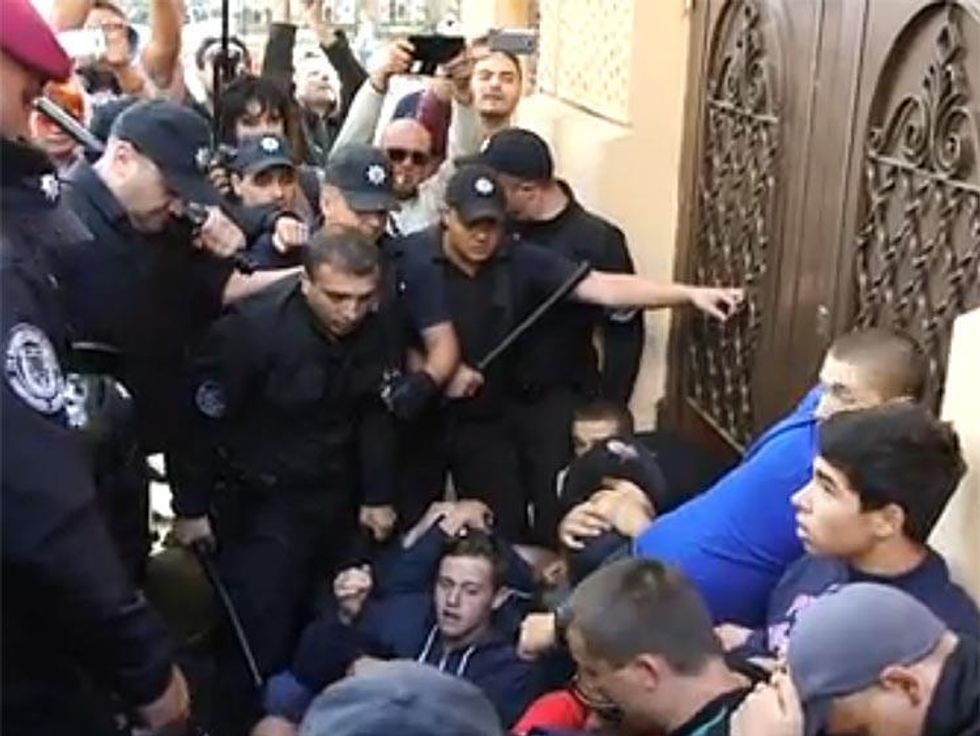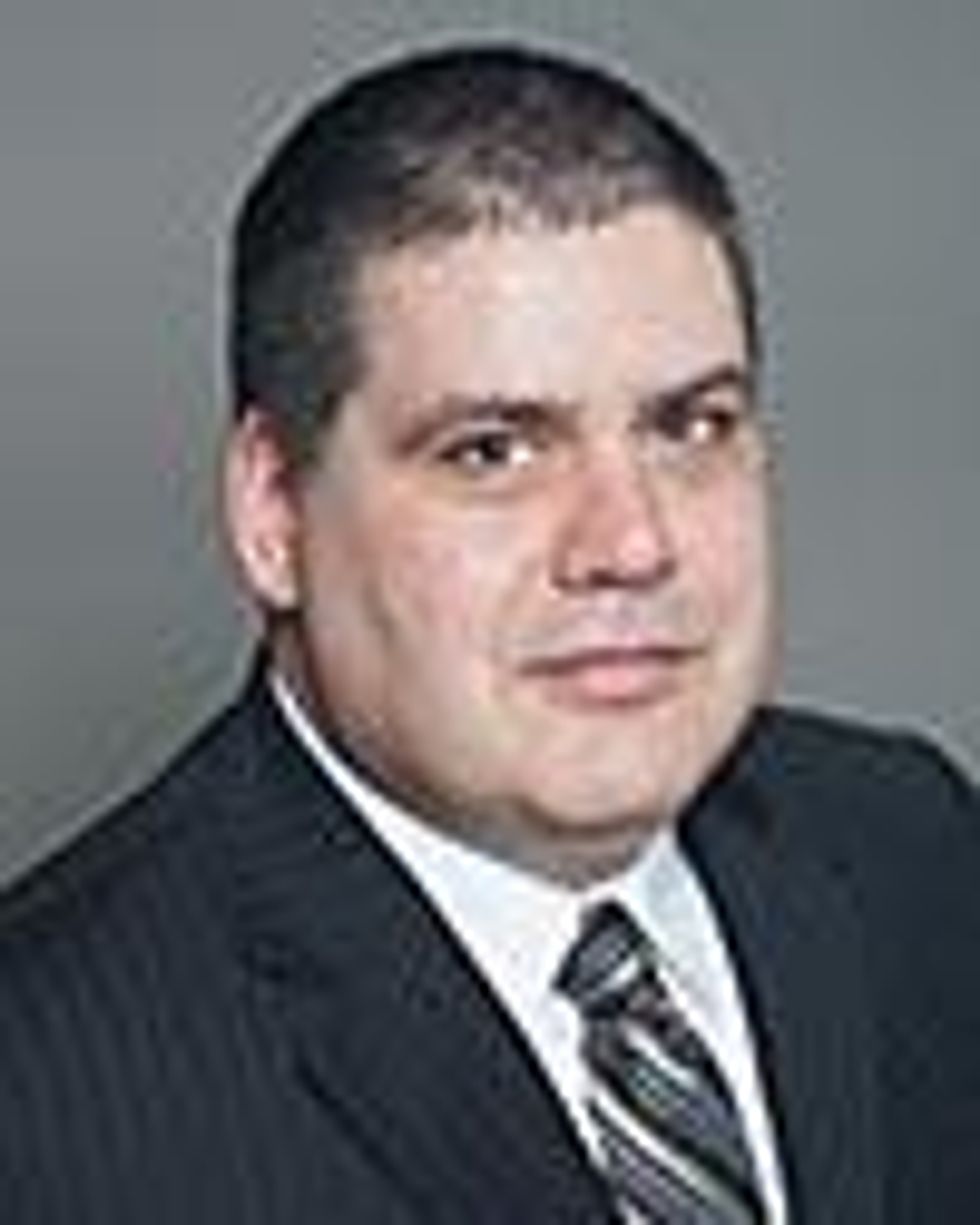Odessa, Ukraine, is known for its catacombs, a massive network of tunnels underneath the city. It's estimated that there are 1,500 miles of pathways, almost twice as long as the California coastline. The tunnels were created when miners dug limestone out by the ton to be used in constructing Odessa. Later they were hiding places for a wide range of Odessa citizens, including political opposition figures who lived in the catacombs for months at a time, plotting their revolution.
These days, you can tour only small portions of the catacombs. But there are still places in Odessa to get a sense of revolution. One is just a few feet below ground in a small basement apartment made of the same limestone from the catacombs. This apartment serves as the headquarters for Odessa Pride, and here you'll find people committed to the cause of freedom. They are using paintbrushes and poster board and the internet to build relationships across Ukraine -- and the world -- in their determination to create a country that treats all of its citizens with equality and respect.
I came to Odessa to witness history being made: the first LGBT Pride march outside of the capital, Kiev. It was unclear, however, if the march would actually happen.
Ukraine has a checkered history on the rights of LGBT people. Although homosexuality was decriminalized in the early 1990s, there are still strong currents of homophobia and transphobia, as the influence of tradition and the Ukrainian Orthodox Church persist. It's been a long struggle.
LGBT people were active and visible in the Maidan movement of 2014, which brought about the end of the presidency of Viktor Yanukovych and the beginning of a break with Russia. However, the freedoms won were not spread equally, and many of the same nationalist impulses that drove Maidan also opposed recognizing LGBT people as full citizens.
Since then, there have been steps both forward and backward. Seeking to cement ties with the European Union and the West more generally, Ukraine has passed progressive laws, including one protecting LGBT people from workplace discrimination. When it comes to Pride celebrations and equality festivals, however, the response has varied from bans and forced cancellations to massive parades in Kiev, where the government came out publicly in favor of the event and thousands of police officers maintained the peace.
In 2016 an Equality Festival in Lviv was canceled after right-wing nationalist forces threatened the event and the city refused to stand up in support of the activists. While the organizers continued to try to host some of the events, the venue was surrounded by anti-LGBT activists and eventually the participants were evacuated. However, similar events took place without incident in both Dnipro and Kiev, and the 2016 Pride march in Kiev became a notable symbol of success on LGBT issues in Ukraine.
So what would happen in Odessa was anyone's guess. On Thursday evening, two days before the march was supposed to happen, activists had to go to court to defend their right to host it. Local authorities insisted that they could not provide adequate security and that they were acting to protect the safety of LGBT people by pushing for its cancellation. The court agreed and ordered the event canceled.
But the activists, led by Anna Leonova, refused to take no for an answer. When I asked Anna how the march could go forward given the court decision, she told me that the court banned the march from taking place at a specific time and place. The activists filed another petition with the mayor's office to hold the march at another location, Primorsky Boulevard. While discussing the situation with the police, Anna told them her team would simply begin submitting multiple petitions every day for events in various parts of the city and that they would continue to do so until they were granted permission. In the face of this and the international attention that the event had started to receive, the police relented and agreed not just to allow the event but also to provide security.
And so on Friday night, activists gathered in their headquarters to paint signs, come up with chants, and do their best to inform their supporters that the Pride event would go on after all.
The next morning, activists gathered near the monument to the Duke de Richelieu, one of the first leaders of Odessa. Around 80 brave activists turned out in spite of the fact that there were anti-LGBT forces mobilizing to interrupt the march. They were met by dozens of journalists and photographers and upwards of 200 police officers who screened people before letting them join the procession.
The march was a quick affair relative to the hours-long parades in many Western cities. But the fact that it was happening at all was historic. Activists carried rainbow flags and colorful banners and sang out their chants: "LGBT rights are human rights," "Odessa Pride for a free city," and "Love has no gender." At one point, extremists tried to storm the event, but the police who lined the parade route easily deterred them, to the delight of cheering marchers.

Ukraine is at a moment of decision. Episode after episode proves the government has the capacity, if not always the will, to protect the rights of LGBT people as they seek to make their demands known peacefully but forcefully. The United States and international community should make clear to Ukranian public officials that respecting the human rights of LGBT people isn't an optional or part-time endeavor.
Regardless of the response from the authorities, events in Odessa last week show that the LGBT community in Ukraine is strong and ready to assert their rights. As one activist said to me, "We control our own destinies."
 SHAWN GAYLORD is advocacy counsel for Human Rights First, focusing on LGBT issues. Video screen grabs via NBCNews.com.
SHAWN GAYLORD is advocacy counsel for Human Rights First, focusing on LGBT issues. Video screen grabs via NBCNews.com.



 SHAWN GAYLORD is advocacy counsel for
SHAWN GAYLORD is advocacy counsel for 















































































Viral post saying Republicans 'have two daddies now' has MAGA hot and bothered